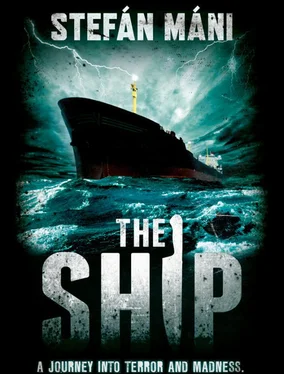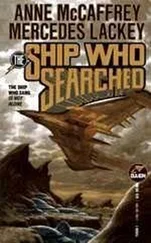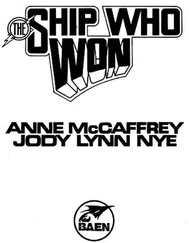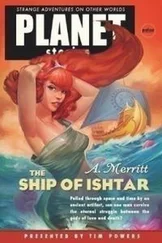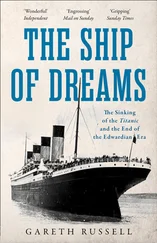Silence.
‘But what of that – the boat was named the Lootus. That’s Estonian for “hope”,’ says the captain, then lifts his glass and breathes in through flaring nostrils. ‘Now let’s drink a toast, my friends. Now we drink to hope! Cheers!’
‘Cheers!’
They all knock back their drinks, grimace and lick their lips. The bottle is empty and the glasses are sticky inside and out.
Jim Morrison continues to sing about the music being over, about turning out the lights.
‘I can’t stand that song,’ says Sæli with tears in his eyes. ‘I just can’t stand it!’
He stands up from the table and pushes some knobs on the tape deck, but the tape keeps turning and the song plays.
‘For fuck’s sake!’ he mutters. He rips the electric cord from the socket but it makes no difference. The tape continues to turn and the song still plays.
‘What the fuck is…’ Sæli shakes the tape deck. ‘Sæli, lad, are you all right?’ asks Guðmundur, but Sæli doesn’t answer him. Instead, he stalks out of the mess with the tape deck in his hand and his eyes full of tears.
‘Sæli?’ The captain stands, his eyes following the seaman.
‘Let him be!’ says Satan, signalling the captain to sit back down.
‘That was Rúnar’s tape,’ says Stoker, sniffing up into his coal-black nose. ‘I think the poor guy misses the bosun.’
‘Yeah, perhaps,’ mumbles Guðmundur and sits back down. ‘I’m just worried that he’ll do something stupid.’
‘Something more stupid than attacking a radio?’ Stoker says with a smirk.
‘Yes,’ says the captain thoughtfully. ‘But it is perhaps best to leave him in peace. People act weird after a shock.’
‘That was quite the incident,’ says Satan and he laughs softly.‘I mean, it isn’t as if the song was “Killing me Softly”, or something, is it?’
23:58
Sæli tears open the door in back of the wheelhouse, leaps over the threshold and runs back to the stern, where he flings the tape deck as far out to sea as his strength allows.
The tape deck flies in a long arc into the night, the music fades away little by little, and a soft splash is heard as it disappears into the silent deep.
‘SO SHUT UP, THEN!’ shouts Sæli over the railing. He holds the edge of the cold railing with both hands, clenches his jaw, widens his tear-filled eyes and tenses every muscle in his body as if he’s about to kick off and jump over the iron wall.
All he can see is darkness as far as his mind can reach: thousands of kilometres of hopelessness, gloom and certain death, and somewhere beyond this all-encompassing void are Lára and Egill in a lit-up flat in the Old Town, like a distorted scene in a dewdrop light-years away.
Like a little star in the night sky, receding at the rate of several thousand kilometres an hour.
The mother and son are so far away that the thought of them at home is becoming ever more unreal. As if they’re no more than a memory. She’s happy and the boy is young, forever. A picture in his mind, nothing more. A picture that, with time, is becoming hazy, remote and confused.
Home. What’s that?
Ársæll Egilsson is stuck on a ship that is the beginning and end of all there is. The ship is ; everything else is only imagination. The ship is home and home is the ship.
Those who are not on board the ship may just as well be on another planet.
He wants to jump into the sea without really knowing why. Is it death that draws him, or the mother and son who are disappearing into the distance?
But he doesn’t jump. Not because reason gains the upper hand, but simply because he can’t.
32°W 4°N
According to the captain’s calculations, the ship is now located just north of the equator. So it has drifted one degree east and three degrees south from Sunday to Tuesday. That’s about twice as much drift to the south as the average international model allows for, but there are very powerful ocean currents around here that doubtless distort all the conditions for the model. There’s no point in comforting yourself with statistical wishful thinking and imprecise predictions when the facts speak for themselves.
The ship is drifting fast to the south, whether Guðmundur Berndsen likes it or not.
One and a half degrees of longitude a day. That’s up to ninety kilometres a day – even more. Seven hundred to 740 kilometres a week.
‘Am I going mad?’ mutters the captain, punching numbers into his calculator as he sits, sweaty and exasperated, at the table in his cabin.
If no-one turns up to help them, the ship will drift all the way to Antarctica in only three months. Unlikely, yes, but statistically possible.
‘For the love of…’ The captain reaches for his sea chart. He puts his index finger on the point where the ship is situated at this moment and moves it slowly down along the thirty-second line of longitude west of the Greenwich line, which is marked zero.
Over the next three weeks they’ll drift south along the coast of Brazil, where it juts out furthest to the east. After a week or so the ship should be situated about 110 kilometres east of the port of Recife. One hundred and ten kilometres! On the map, the distance looks so short that it should be no trouble for a fit man to swim it. But it is 100 kilometres, even more, which is almost three trips across the English Channel.
The dinghy! There’s a rubber dinghy on the ship, an eight-foot Zodiac not unlike the one the pirates arrived on, but shorter. It’s admittedly only meant for three, but Stoker’s nothing but skin and bones. The outboard motor is five horsepower and there’s more than enough petrol, and in good weather it is perfectly possible to sail a dinghy like that on the open sea, even if it is a bit overloaded.
‘It’s going to work out!’ the captain tells himself with a sigh of relief. ‘It’s all going to work out.’
Guðmundur Berndsen turns off his calculator, closes the navigation log, rolls up the chart and drinks the last of his coffee, which has long since gone cold and bitter.
31°W 2°N
They’re standing, lightly dressed, on the starboard side of the boat deck: the captain and the engineer, staring at the Zodiac dinghy that’s drooping like a sail without a wind in the sling that holds it, because it’s been shot to pieces and ripped wide open after the artillery barrage.
An easterly wind is blowing across the dark green ocean and the temperature is a good fifteen degrees Celsius and rising.
‘Can it be repaired?’ enquires the captain as he runs his hands over the deflated rubber.
‘Everything is possible,’ says Stoker and scratches his beard. ‘I have plenty of line and glue. The only thing I need is rubber to make patches.’
‘Isn’t there anything on board you could use?’
‘I could use rainwear. But it has fabric on the inside. The fabric doesn’t glue to rubber as well as rubber to rubber.’
‘Anything else?’
‘No, probably not. I could try rasping the fabric out of the clothes.’
‘Go on, then, do that,’ says the captain, clapping Stoker on the back. ‘You have five days to complete the job.’
‘That should be enough,’ says Stoker with a nod. ‘When will the ship drift south across the equator?’
‘Late tomorrow,’ says the captain and he looks at sun, which will be reaching midday in three hours. ‘Or early the day after.’
‘And then the Brazil current will pull us into its endless flow to the south, is that it?’
Читать дальше
